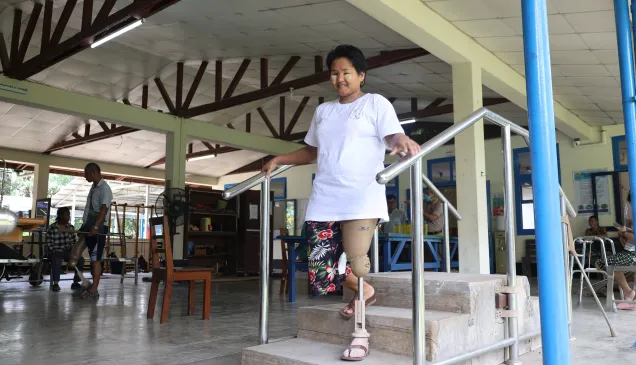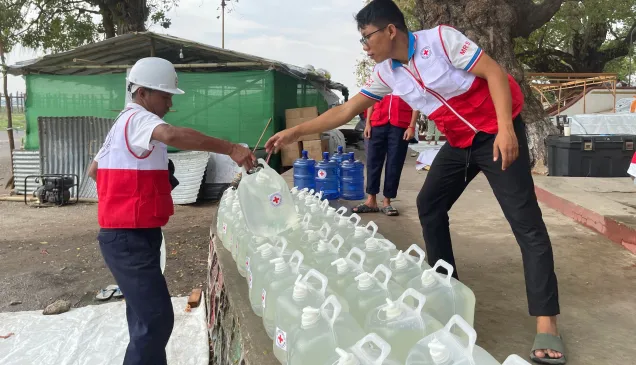Myanmar: Paving their own path
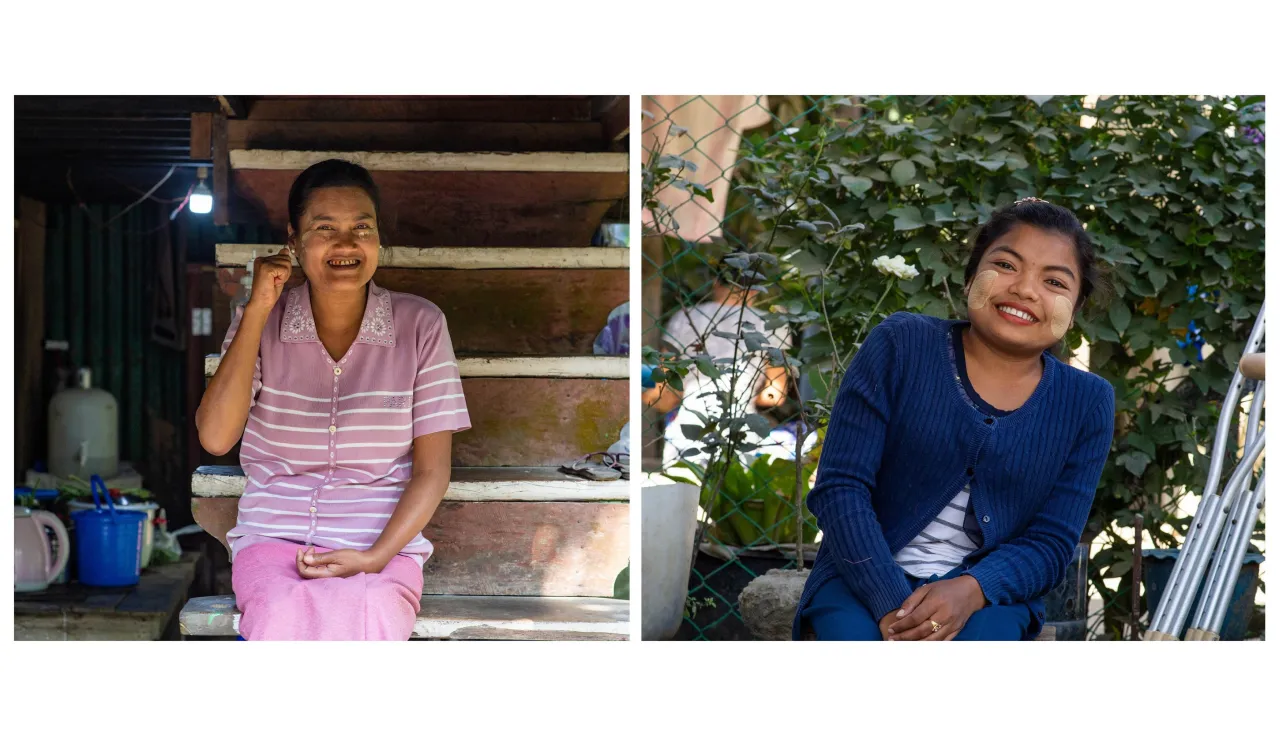
In Myanmar’s Rakhine State, we work alongside individuals who are taking charge of their own lives despite the challenges.
Daw Thandar Oo is taking care of business. She runs a stall in Maungdaw, Rakhine State, selling fried noodles and vermicelli salad. But the competition is tough and adding extra ingredients to the salads to attract customers takes away from the profits.
Daw Thandar Oo needs to earn enough to support her son, daughter and 70-year-old mother. "Earlier, I could run around selling my salads," she says. "But with this leg, it's hard to keep up with the others."
Daw Thandar Oo wears a prosthesis. She lost her leg when diabetes caused medical complications following a burn injury. "As the diabetes couldn't be controlled, the wound didn't heal and the doctor had to amputate my leg," she says. "The doctor then recommended me to the International Committee of the Red Cross (ICRC) for physical rehabilitation."
She travelled to Sittwe in central Rakhine to a physical rehabilitation centre supported by the ICRC. There she was provided with accommodation, food and physical rehabilitation services to help her walk again with the prosthesis. In the months that followed, the process of relearning to walk was challenging. "I could not move around easily as the house was on a slope. I couldn't use crutches or do the exercises that I needed to," she says. "My rehabilitation journey wasn't smooth".
Through this challenging time, her family's support made all the difference. "My daughter is unlike anyone I know. She is an angel... she took really good care of me," says Daw Thandar Oo.
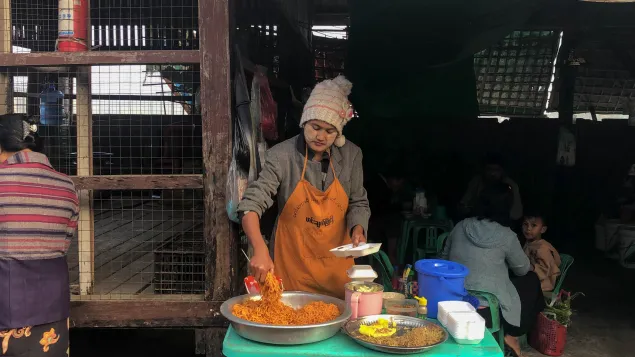
Daw Thandar Oo
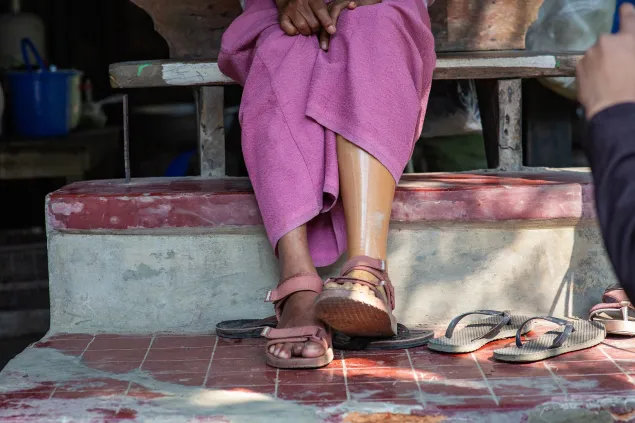
Since being fitted with a prosthetic, Daw Thandar Oo has returned to Maungdaw's markets and is back at work as the main breadwinner of her family. She knows that they need her. "If you lose one leg, you still have one more leg and two hands. Work with what you have," she says. "Right now, I am the husband, the wife, the father and the mother."
Life has not been easy for Daw Thandar Oo, but despite the setbacks and challenges she remains hopeful and looks to the future.
In 2021, the ICRC was able to support more than 700 people in need of prosthetics across Myanmar.
I would like to tell other people living with disabilities to never lose courage. Work like me; work as others do. If others do ten things, we might need to try a little harder to do seven things because we have to earn for ourselves.
Daw Thandar Oo
Watch the video
If you travel down the Rakhine coastline from Maungdaw, you will arrive at the state capital of Sittwe. That's where Khin Myat Myat Kyaw lives with her parents, sisters and brother.
Unable to attend school because of a health condition called spina bifida – that affects the formation of the spine and spinal cord and makes mobility a challenge, Khin Myat Myat Kyaw has forged her own path of self-learning. "I like mathematics, so I used a basic textbook at home to teach myself numbers, simple calculations and how to count money," she says.
This self-learning eventually helped Khin Myat Myat Kyaw pursue other interests like tailoring and embroidery. "I would accompany my sister to the tailor's shop where she worked and sit for hours watching her sew," she says. "When my sister bought her own sewing machine, I quickly learned to sew and started making my own clothes."
Now, Khin Myat Myat Kyaw is enrolled in a three-month tailoring programme funded by the ICRC. "They're teaching us how to take measurements. I can now sew trousers, shirts and skirts. I am also learning how to sew the three-layered and four-layered longyi," she says.
In addition to the tailoring course, Khin Myat Myat Kyaw makes hair scrunchies by hand that she sells at her sister's shop to support herself and others. "I even donate some money to the pagoda and also support my family. I value the income a lot as I have earned it myself," she says.
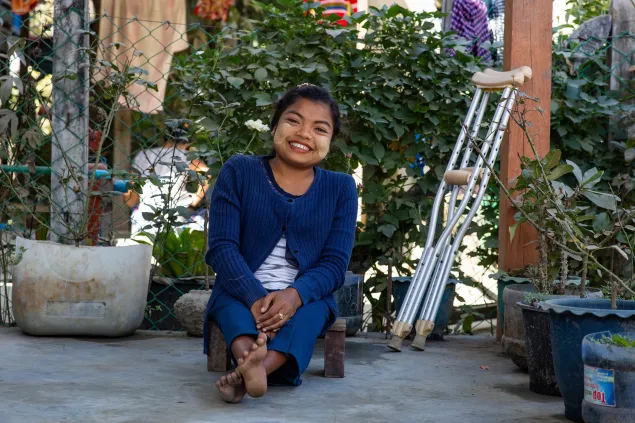
Khin Myat Myat Kyaw
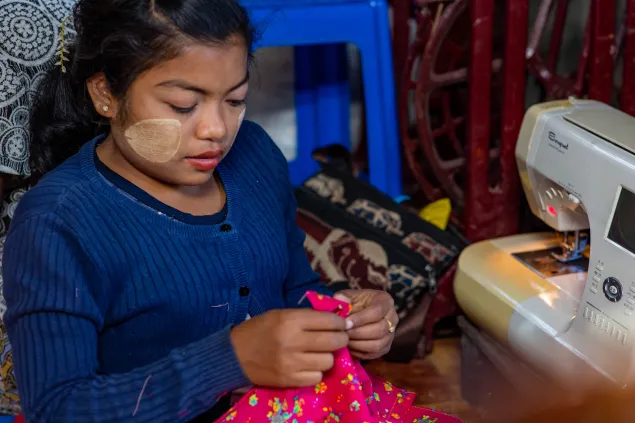
We first met Khin Myat Myat Kyaw in 2020, when we supported her with a wheelchair that made moving around easier. However, this didn't help in the monsoon season when it gets very muddy. And crutches, although useful, can be uncomfortable.
Khin Myat Myat Kyaw invests a lot of her time looking for new ways to overcome these challenges. The process of learning is always ongoing.
Even as a person living with a disability, you can be smart and capable
says Khin Myat Myat Kyaw, urging others to not feel sad or depressed.
For Khin Myat Myat Kyaw, her friends and family have been a lifeline in life's darker moments. "When I felt unsure about joining the tailoring course, it was my mother who encouraged me to join it," Khin Myat Myat Kyaw says.
She is not alone. In 2021, in Rakhine, we helped close to 200 people with mobility challenges, similar to those faced by Khin Myat Myat Kyaw.
Watch the video
The ICRC works alongside people living with disabilities across Myanmar. Our hope is to see everyone have access to opportunities that allow them to participate fully in society.


